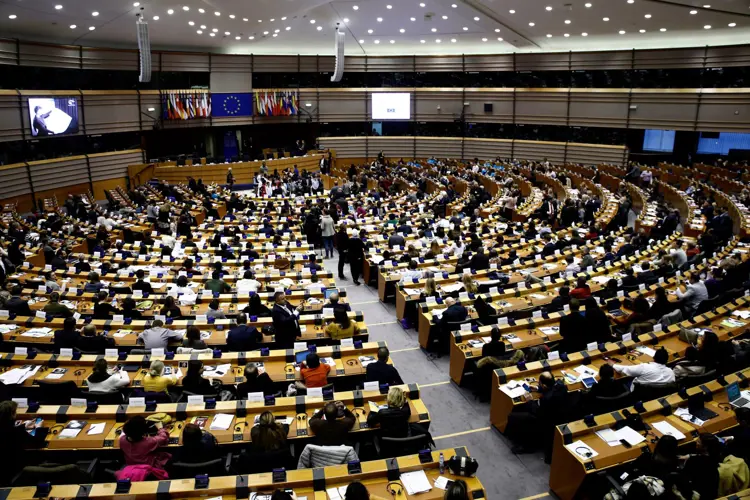The European Union’s Parliament voted yesterday to reject the European Commission’s recommendations that EU member countries apply smoking restrictions to vaping and impose harsh new bans on public vaping and smoking.
The Commission released its “smoke-free environments” recommendations in September, and asked the Parliament and Council of the European Union to ratify them. The Commission—the EU’s executive arm—said in its document that the use of vapes and heated tobacco products (HTPs) poses risks of "significant respiratory and cardiovascular problems."
The recommendations would not have carried the force of law, but would have urged the 27 EU member states to adjust their laws to include vaping under existing smoking restrictions, and to adopt new laws limiting public vaping and smoking. The Council is likely to also vote on the recommendations at a meeting of national health ministers next week, but without parliamentary approval they cannot be officially adopted as EU recommendations. Individual countries are, however, free to adopt the Commission's recommended rules.
The recommendations include bans on vaping and smoking in:
- Indoor workplaces
- Indoor public places
- Public transport
- Outdoor recreational areas, including public playgrounds, amusement parks, swimming pools, and zoos
- Outdoor or semi-outdoor areas next or close to an establishment, including outdoor spaces of restaurants, bars, and cafes
- Outdoor or semi-open areas related to public transportation, including bus, tram and train stops and airports
- Outdoor areas associated with workplaces
- Outdoor areas of hospitals, clinics, and nursing homes
- Outdoor area of educational facilities, including universities
The Commission also recommended that EU member governments consider banning vaping and smoking in private cars carrying children, and in outdoor areas adjacent to buildings with heavy foot traffic, like shopping mall entrances. Bystanders breathing secondhand e-cigarette vapor (or aerosol) have not been shown to suffer negative health effects, but the recommendations would encourage EU countries to treat vapor as though more dangerous than known causes of cancer, heart, and lung disease like combusted oil and coal used for heat and transportation.
The Parliament rejected the recommendations overwhelmingly: 378-152 (with 26 members abstaining), according to Euronews.
The vote, unfortunately, doesn’t signal a new era of reasonable attitudes toward vaping. Rather, according to Clearing the Air’s Peter Beckett, the recommendations were defeated because parties on the political left objected to two “poison pill” amendments from right-leaning parties that acknowledged the lower relative risk of vaping versus combustible tobacco.
“For the Socialists, the hard Left and the Greens, this was too far,” wrote Beckett, who has worked as a vaping industry lobbyist. “It seems that none of these three groups was willing to vote for a report that said things about relative risk that are objectively true, despite the rest of the proposed Resolution heaping praise on the Commission’s proposal to ban vaping everywhere, as they had wanted from the start.”
The vote, and the quarrels between the EU parties, sets up a showdown next year when the EU will debate and adopt a revision of the Tobacco Products Directive, the EU's foundational tobacco control law.
The Freemax REXA PRO and REXA SMART are highly advanced pod vapes, offering seemingly endless features, beautiful touchscreens, and new DUOMAX pods.
The OXVA XLIM Pro 2 DNA is powered by a custom-made Evolv DNA chipset, offering a Replay function and dry hit protection. Read our review to find out more.
The SKE Bar is a 2 mL replaceable pod vape with a 500 mAh battery, a 1.2-ohm mesh coil, and 35 flavors to choose from in 2% nicotine.
Because of declining cigarette sales, state governments in the U.S. and countries around the world are looking to vapor products as a new source of tax revenue.
The legal age to buy e-cigarettes and other vaping products varies around the world. The United States recently changed the legal minimum sales age to 21.
A list of vaping product flavor bans and online sales bans in the United States, and sales and possession bans in other countries.
















